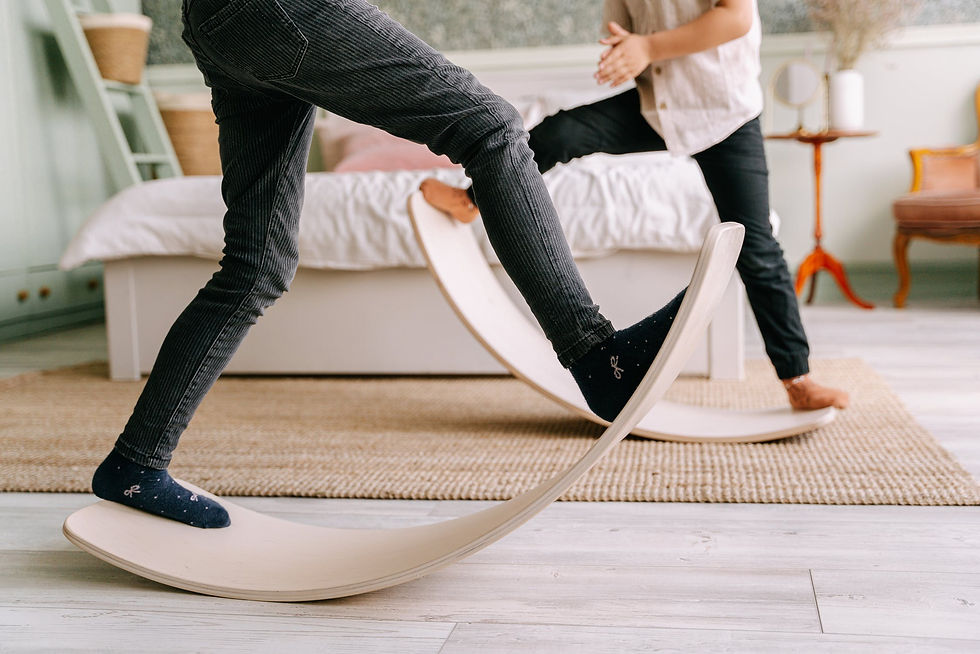The 8 Sensory Systems and Their Importance
- Lyndsey Ryburn, MOT, OTR/L
- Apr 27, 2022
- 2 min read

We all begin developing our sensory systems and sensory processing skills in utero (that is, before we are even born). There are 8 different sensory systems present that are all important for their own reason:
Tactile System: This is our sense of touch. The tactile system is so important for us to utilize in exploring the world around us with receptors that are on our skin (primarily hands and feet, but truly all over the body!)
Visual System: The visual system is how we see the world with our eyes! This allows us to navigate our environments, explore the world through our sense of sight and predict potential dangers that we see as a threat in our environment(s).
Auditory System: This is our sense of hearing. This system allows us to gain sound information through our ears about our environment(s). Additionally, it allows us to hear, process, and comprehend language in order to communicate with others!
Olfactory System: The olfactory system is our sense of smell. It allows us to process different scents from our everyday environment(s) through our nose and can also directly affect our gustatory sense (sense of taste).

Gustatory System: This is our sense of taste. This system allows us to taste food and drink (and any other non-edible items we may put in our mouth) and detects salty, sweet, bitter, spicy etc. flavors.
Proprioceptive System: The proprioceptive system senses the joints and muscles in the body compressing and moving throughout the day. This system is important in developing a sense of body awareness and grading appropriate force we use on objects. This system works closely with the vestibular system detecting movement in the muscles and joints.
Vestibular System: This system contributes to balance and movement as well as orientation in space. It originates in the inner ear to detect rotary (spinning) and linear (back and forth or side to side) movements. This system works closely with the proprioceptive system to help the brain and body understand where it is in space while moving .

Interoception: This sensory system is often neglected or forgotten, but is related to sensations that are related to the physiological and physical state of the body. Examples of this could be hunger, stomach ache, feeling the heart pounding during stressful or scary situations etc.
All of these sensory systems have specific importance when it comes to development. Particularly when exploring the sensations of the world around us, understanding how our body moves and works as well as to detect any potential dangers or safety concerns within our daily environments. If one of these systems is not functioning properly, it can negatively affect our activities of daily living and how we perceive, process, and respond to certain activities and experiences.
If children are having difficulty with sensory processing, this can look like frequent daily meltdowns, inability to engage in certain activities, covering ears or eyes, frequently bumping into objects/people, clumsy/falling often, always on the move (unable to sit still for a few minutes), picky eating and more. If you are having concerns about your child's sensory processing and development, seek out an occupational therapist in your area as they are trained to help!






Comments